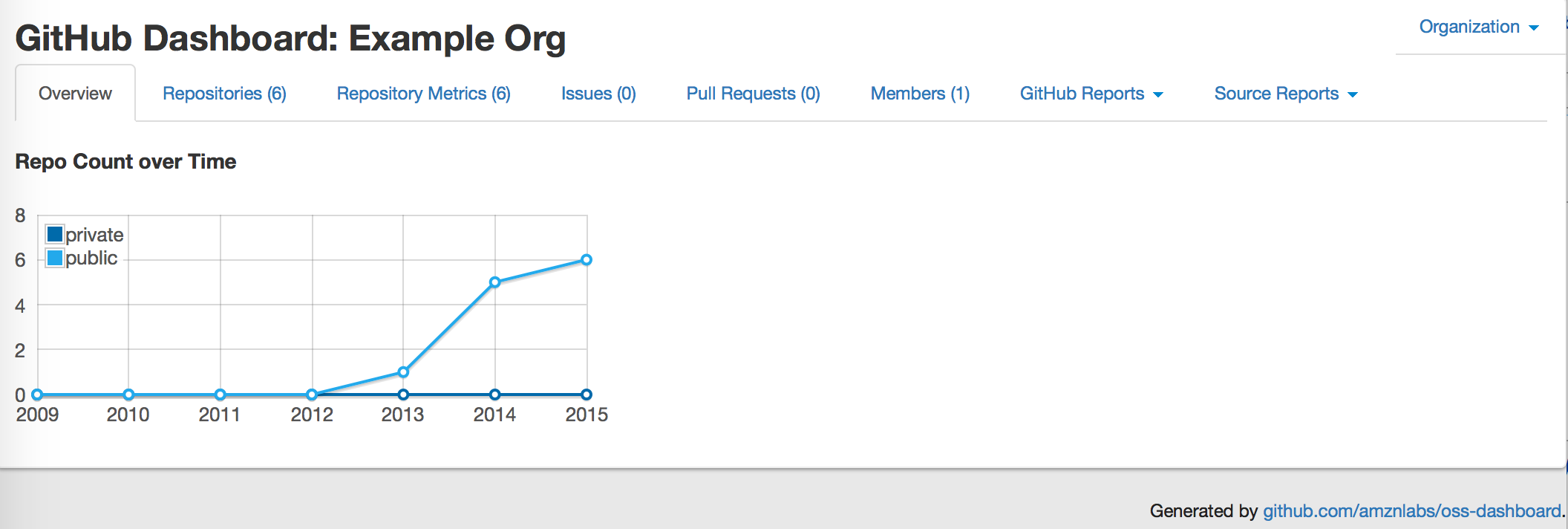There is a distinct lack of tooling for GitHub admins and Open Source program managers who oversee many GitHub organizations. The oss-dashboard provides a view over many GitHub projects, allowing for custom reporting on the synchronized data.
There are three parts to the oss-dashboard.
- Ruby is used to connect to GitHub, pull down the latest data, and update a PostgreSQL Database.
- Git is used to check out the latest version of the source from each GitHub repository.
- Ruby is used to run reports on the database.
- Ruby is also used to run reports on the checked out source code.
An HTML dashboard is generated from the data and reviews.
The following documents provided further information
The high level plan is to work on the following items:
- Custom dashboards. This is mostly implemented and needs the configuration approach implemented.
- Move away from XSLT to ERB (or another Ruby based HTML generator). Reality is that XSLT seems to scare people.
- Move away from a single HTML page to many HTML pages. It was useful to wrap up a report into a single HTML and mail around, but now the lack of deep linking is a pain.
- Add a Repository dashboard. Currently repositories are only viewed in the multiple (ie: each dashboard displays multiple repositories at once). Having a dashboard for each repository will allow for more data.
- Merge the reporting. Currently there are Database and Source code report structures. The plan is to merge them together.
- Run a live demo, possibly using Apache MXNet and its dependencies as the data.
- Consider using GHTorrent as the source of data; though the SQL database is still very attractive and simplifies the reporting step.
- Add more reports!
- Pull the source apart. Currently it's all driven from one high level ruby file. Splitting into independent pieces (syncing, reports, dashboard generation) will allow each section to have more focus.
- Custom charting + custom visualization in general so that a custom-viz plugin can pair with a custom-report plugin, without the engine in the middle having to understand their format.
Contributions are much appreciated, be they bug reports, ideas or patches. See the Contributing file for more information.
Or rather, some useful lists of Other Projects of Interest:
